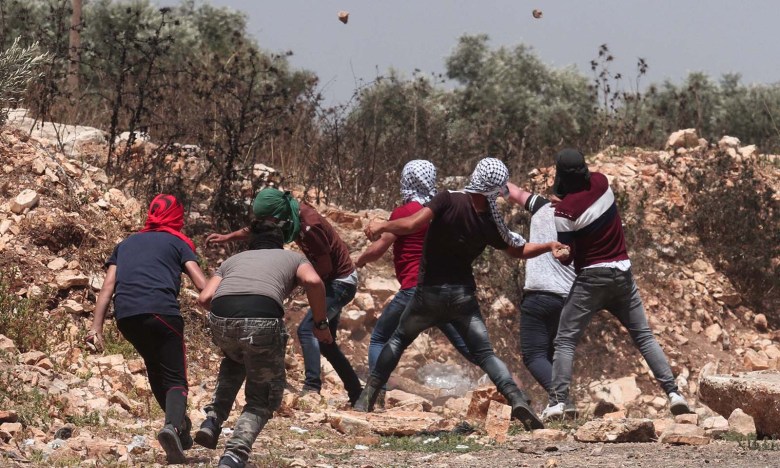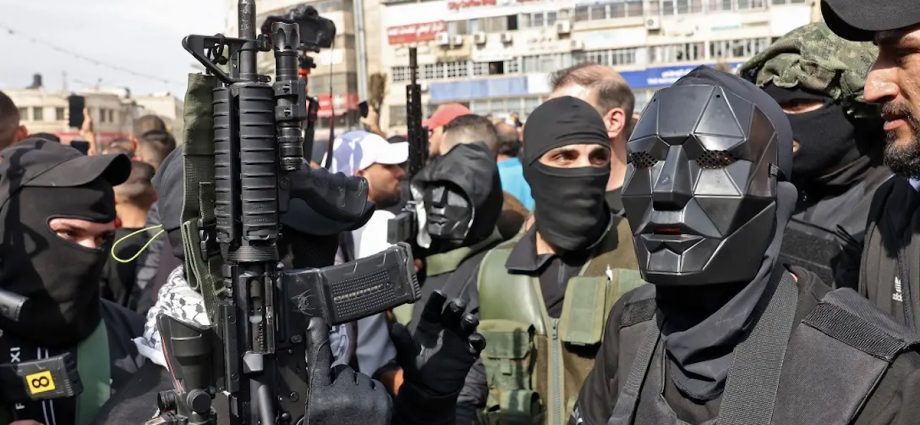Weeks of violence have created concern that a new, prolonged conflict between Israel and the Palestinians is well on the way.
Some key observers argue that a new episode of the Palestinian effort to shake off Israeli domination has begun. The first general uprising roiled Israel and the Palestinian territories in the 1980s and 90s; the second at the turn of the 20th Century.
William Burns, director of the United States Central Intelligence Agency (CIA), said the present unrest reminds him of what he saw when he labored in the Middle East during the second intifada.
“The conversations I’ve had with Israeli and Palestinian leaders,” he said after a trip to the region, “left me quite concerned about the prospects for even greater fragility and even greater violence between Israelis and Palestinians.”
“I’m concerned – as are my colleagues in the intelligence community – that a lot of what we’re seeing today has a very unhappy resemblance to some of those realities that we saw then, too.”
Tor Wennesland, the United Nations Middle East peace talks coordinator, has long warned that trouble was brewing. “After decades of persistent violence, illegal settlement expansion, dormant negotiations and deepening occupation, the conflict is again reaching a boiling point,” he said late last year.
“High levels of violence in the occupied West Bank and Israel in recent months, including attacks against Israeli and Palestinian civilians, increased use of arms and settler-related violence have caused grave human suffering.”
Wennesland argued that diplomatic stagnation has created intense frustrations among Palestinians, who inhabit enclaves separated by Israeli-controlled territory while Israel constructs and populates settler communities on land the Palestinians desire for an independent state.
At least 50 Palestinians, including civilians and armed attackers, have been killed by Israeli troops so far this year. More than 249 were killed last year. Israeli deaths this year number 30, including soldiers, West Bank settlers and civilians inside Israel.
Western powers – and especially the United States – were once heavily engaged in nurturing peace talks and keeping conflict from spreading regionally. With the war in Ukraine and burgeoning concerns about China’s power in East Asia, the Palestinian issue has largely faded from Washington’s view.

When US Secretary of State Anthony Blinken traveled to Israel and the Palestinian Territories in January this year, he offered no diplomatic initiatives to ease tensions.
Rather, he pledged US$50 million to the Palestinian Authority to bolster its police force. The Palestinians, who pressed for peace talks and an end to settlement expansion, turned down the money.
In the meantime, Israeli military squads raid nominally Palestinian-controlled towns and cities. Palestinians attack the Israeli soldiers and their settler allies.
Generational and tactical changes among the Palestinians distinguish current unrest from the other outbreaks that were labeled intifadas.
Limited violence on the part of Palestinian stone-throwing youths loyal to the Palestine Liberation Organization (PLO) marked the first intifada. Loyalty aside, the young militants operated autonomously under local leadership.
The uprising resulted in peace talks based on a “two-state solution” with the creation of a Palestinian state. However, the negotiations eventually withered away with only limited territorial compromises.

The second intifada, rather than being dominated by stones on the Palestinian side, featured gunfire from PLO operatives and the organization’s creation of Islamist terrorist squads to attack civilians inside Israel. The latter move was made partly to compete with the Islamic Resistance Movement (HAMAS), a group that favored a single-state solution instead of one Jewish and one Arab.
The next intifada will be unlike the past two. Armed groups are emerging independently of each other. They communicate not by leaflet but online and individually, a kind of intifada 2.0.
And they despise not only the Israelis but also the PLO establishment.
“It’s an angry conglomeration of individuals and both organized and random armed groups with no unified leadership,” wrote the Jerusalem Post.
Seeds for a new uprising have sprouted in Jenin, a central West Bank town with a long history of battling Israelis. Militias known as the Jenin Brigades emerged in a refugee camp in the city.
The brigades were first nourished by Islamic terrorist groups based in the Gaza Strip, but soon attracted recruits from secular nationalists as well. Israeli armed forces social media described the Jenin Brigades as “a stronghold for the world’s deadliest terrorist groups.”
Historically, such language usually presages raids onto Palestinian territory, and those have indeed become numerous.
Similar organizations emerged in the city of Nablus, which has a history of militant anti-Zionist activity dating from before World War II. One group, also originally supported by Islamic Jihad, developed its own identity. As in Jenin, disaffected youth of all factions joined.
One of the new group’s members, an 18-year-old named Ibrahim al-Nabulsi, died in an Israeli raid on Nablus last summer. He had earned a reputation for fearlessness; his nickname was the Lion. Before his death, he recorded an online testament:
I love you so much. If I am martyred, guys, I love my mother. Take care of the homeland after I’m gone. And my final will to you: On your honor, don’t let go of the rifle – on your honor. I’m surrounded, and I am going toward my martyrdom.
Tens of thousands viewed the message and scores of recruits flocked to join the newly-named Lion’s Den.
The Israelis responded to Jenin and Nablus unrest using tactics developed from the 1980s onward: shootouts with armed activists, killings of unarmed activists and bystanders, demolition of the housing of families connected to alleged terrorists and sending undercover agents to hunt down individuals who had managed to survive in the other situations.
And the Israelis were not the only ones who wanted to eliminate the Jenin Brigades and the Lion’s Den. Last September, Palestinian Authority security forces raided Nablus and arrested a pair of Lion’s Den operatives on behalf of Israeli police.
Such youthful militants are focused less on hierarchical organization than on action. “It’s an angry conglomeration of individuals and both organized and random armed groups with no unified leadership,” wrote the Jerusalem Post.

Israel’s current government under Prime Minister Benjamin Netanyahu, who has off and on served 15 years in power and has long favored expansion of Israeli settlement construction, has announced plans to build thousands more settlement homes and to regularize nine settlements that past governments had declared unlawful.
The move was condemned by the United States, the United Kingdom and the European Union, all of which said they were “deeply troubled” by the decision. They said the actions “only serve to exacerbate tensions.”
But they stopped short of sanctioning or otherwise punishing Israel. Nor did they lay out any plan to rejuvenate the moribund “two-state solution” peace talks.
Daniel Williams is a former foreign correspondent for The Washington Post, Los Angeles Times and Miami Herald and an ex-researcher for Human Rights Watch.
His book Forsaken: The Persecution of Christians in Today’s Middle East was published by O/R Books.

